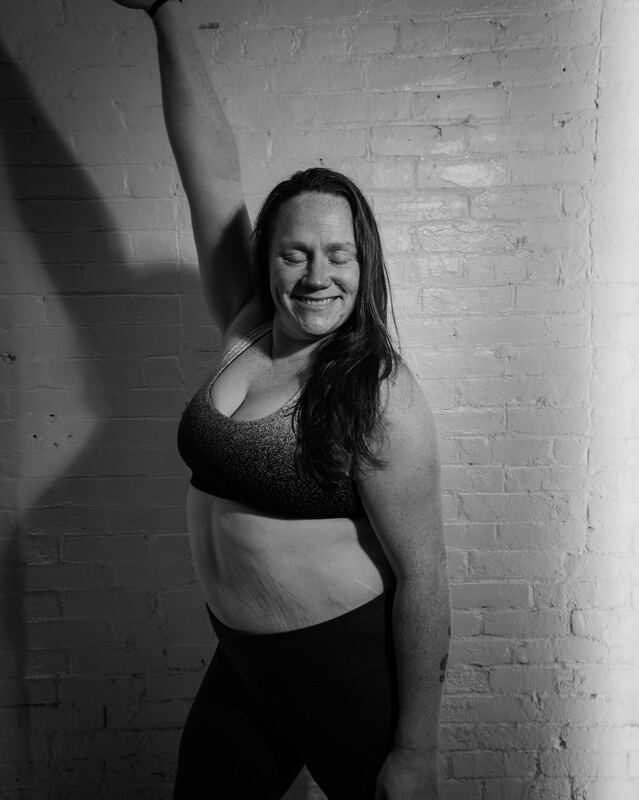|
I consider myself a Body Positive Trainer. What does this mean exactly? For me, it means that I want to focus not solely on my clients’ aesthetic goals, but also encourage them to examine (and hopefully improve) their relationship with their bodies.
⠀⠀⠀⠀⠀⠀⠀⠀⠀ Something I’ve been challenging myself with is this: how does my view regarding Body Positivity juxtapose with my job of helping people get more fitness-y? It’s a tough one, I’ll be honest. It’s difficult when a potential client approaches me with the goal of “getting down to my high school weight”, or “having abs”, or “getting their ‘body back’” after having a baby. As a trainer, I absolutely want to help my clients achieve their goals. What I want even more, though, is to challenge them to figure out what drives those specific goals—to find out WHY, at age 55, they want to weigh what they did when they were going through puberty; WHY, when they’re only 6 weeks postpartum and breastfeeding and healing from a C-Section, they’re concerned primarily with losing body fat; WHY they want to look like an air-brushed Instagram model who only eats plain broccoli and chicken breast for weeks prior to a photo-shoot. Finding that WHY, that deep reason that drives that goal, that’s the good stuff. That’s the treasure chest full of the needs, desires, passions, tears, traumas, excitement, memories (great and not-so-great) that fuel those seemingly simple goals. And that’s where Body Positivity is an amazing tool and philosophy. Because we can stop talking about numbers on a scale, we can stop talking about size and “fat” vs. “lean”, and start the dialogue that really, truly matters: self-acceptance. You don’t have to “love” yourself or love your body. But you can try to give it credit for what it can do and how well it’s served you to this point. You can treat it with respect by giving it movement, sleep, food, and care. You can listen to what it needs and what it wants and do your best to provide it those things. Maybe one day it needs fresh air and a silent walk, and maybe the next day it needs to pound a max deadlift while covered in chalk and sweat. ⠀⠀⠀⠀⠀⠀ Every person I’ve ever worked with has had some level of negative body image, disordered eating, or body dysmorphia (or a combination of all of these). Unfortunately, in our society, this has become the norm. More often than not you can catch most of us disliking, punishing, talking negatively about, or even downright hating our bodies. What effect does this have on our self-image, on our mental and physical health, on our relationships and even on our fitness goals? It’s actually self-sabotaging. The best and most fascinating things about coming into Body Positivity, Body Neutrality, and/or self-acceptance are the changes that take place once you stop sabotaging yourself with resentment and animocity. Your mindset evolves to one more geared toward optimism, your attitude becomes more “I can do this!!” instead of “I’d never be able to do that”. Your body is being nourished with care and respect and it thanks you with all kinds of cool changes! Some of the changes can be measured, like increasing your squat or bench press or improving your mile time, or even measured by inches and pounds on the scale if that’s your thing. But many of the changes can’t be measured in a standard or conventional way, because those changes happen in your mind, your heart, and your spirit. The realization that your body is an awesome way to move you through life, but it is not (as you once thought), the absolute most important and most defining piece of you. That’s liberation. That’s empowerment. That’s peace. And that’s exactly what I want for each and every person I work with, including myself.
2 Comments
Carrie
2/21/2020 09:06:29 pm
Kelly thank you!! Being available to support one another is so important, especially when we’re fighting those negative thoughts and feelings about ourselves. I’m so glad we can be here for each other! ?
Reply
Leave a Reply. |
Archives
May 2020
Categories |


 RSS Feed
RSS Feed